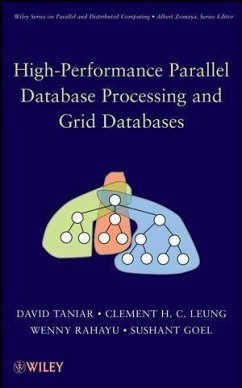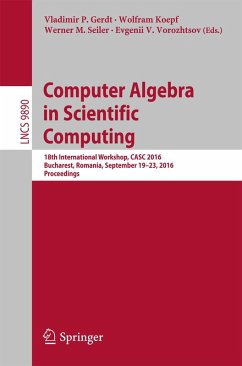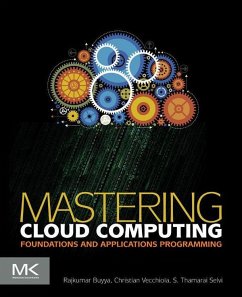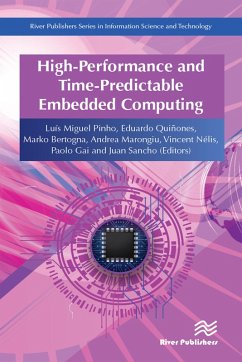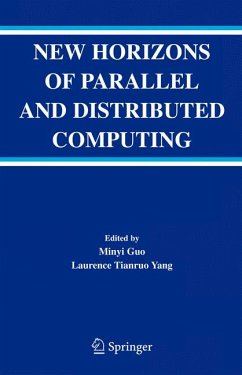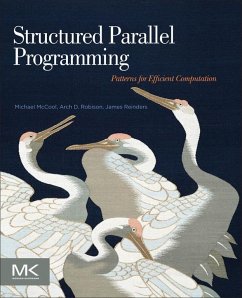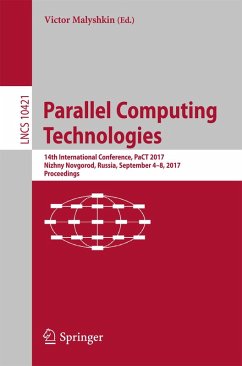
Scientific Parallel Computing (eBook, PDF)

PAYBACK Punkte
37 °P sammeln!
What does Google's management of billions of Web pages have in common with analysis of a genome with billions of nucleotides? Both apply methods that coordinate many processors to accomplish a single task. From mining genomes to the World Wide Web, from modeling financial markets to global weather patterns, parallel computing enables computations that would otherwise be impractical if not impossible with sequential approaches alone. Its fundamental role as an enabler of simulations and data analysis continues an advance in a wide range of application areas. Scientific Parallel Computing is the...
What does Google's management of billions of Web pages have in common with analysis of a genome with billions of nucleotides? Both apply methods that coordinate many processors to accomplish a single task. From mining genomes to the World Wide Web, from modeling financial markets to global weather patterns, parallel computing enables computations that would otherwise be impractical if not impossible with sequential approaches alone. Its fundamental role as an enabler of simulations and data analysis continues an advance in a wide range of application areas.
Scientific Parallel Computing is the first textbook to integrate all the fundamentals of parallel computing in a single volume while also providing a basis for a deeper understanding of the subject. Designed for graduate and advanced undergraduate courses in the sciences and in engineering, computer science, and mathematics, it focuses on the three key areas of algorithms, architecture, languages, and their crucial synthesis in performance.
The book's computational examples, whose math prerequisites are not beyond the level of advanced calculus, derive from a breadth of topics in scientific and engineering simulation and data analysis. The programming exercises presented early in the book are designed to bring students up to speed quickly, while the book later develops projects challenging enough to guide students toward research questions in the field. The new paradigm of cluster computing is fully addressed. A supporting web site provides access to all the codes and software mentioned in the book, and offers topical information on popular parallel computing systems.
Scientific Parallel Computing is the first textbook to integrate all the fundamentals of parallel computing in a single volume while also providing a basis for a deeper understanding of the subject. Designed for graduate and advanced undergraduate courses in the sciences and in engineering, computer science, and mathematics, it focuses on the three key areas of algorithms, architecture, languages, and their crucial synthesis in performance.
The book's computational examples, whose math prerequisites are not beyond the level of advanced calculus, derive from a breadth of topics in scientific and engineering simulation and data analysis. The programming exercises presented early in the book are designed to bring students up to speed quickly, while the book later develops projects challenging enough to guide students toward research questions in the field. The new paradigm of cluster computing is fully addressed. A supporting web site provides access to all the codes and software mentioned in the book, and offers topical information on popular parallel computing systems.
- Integrates all the fundamentals of parallel computing essential for today's high-performance requirements
- Ideal for graduate and advanced undergraduate students in the sciences and in engineering, computer science, and mathematics
- Extensive programming and theoretical exercises enable students to write parallel codes quickly
- More challenging projects later in the book introduce research questions
- New paradigm of cluster computing fully addressed
- Supporting web site provides access to all the codes and software mentioned in the book
Dieser Download kann aus rechtlichen Gründen nur mit Rechnungsadresse in A, D ausgeliefert werden.




